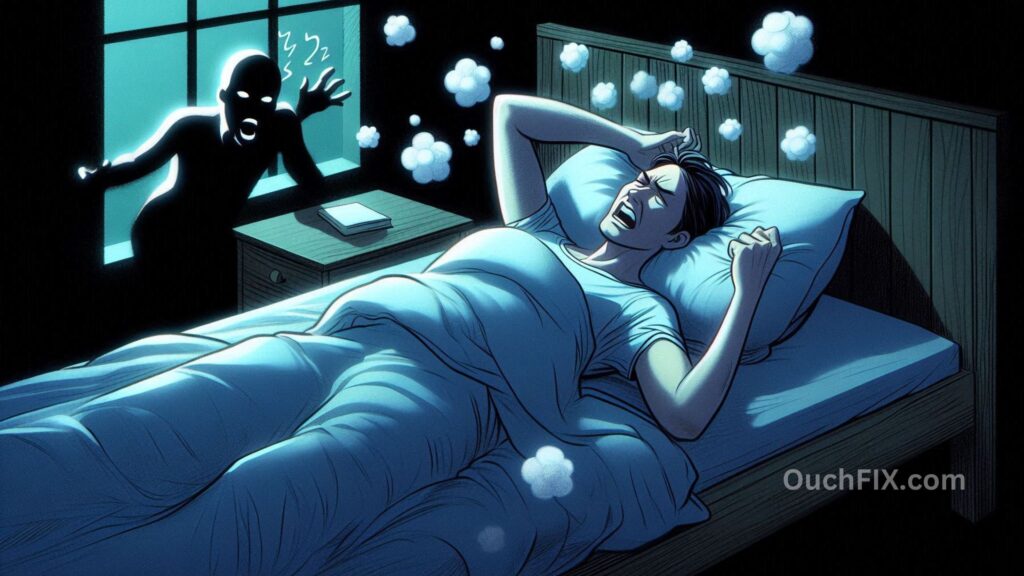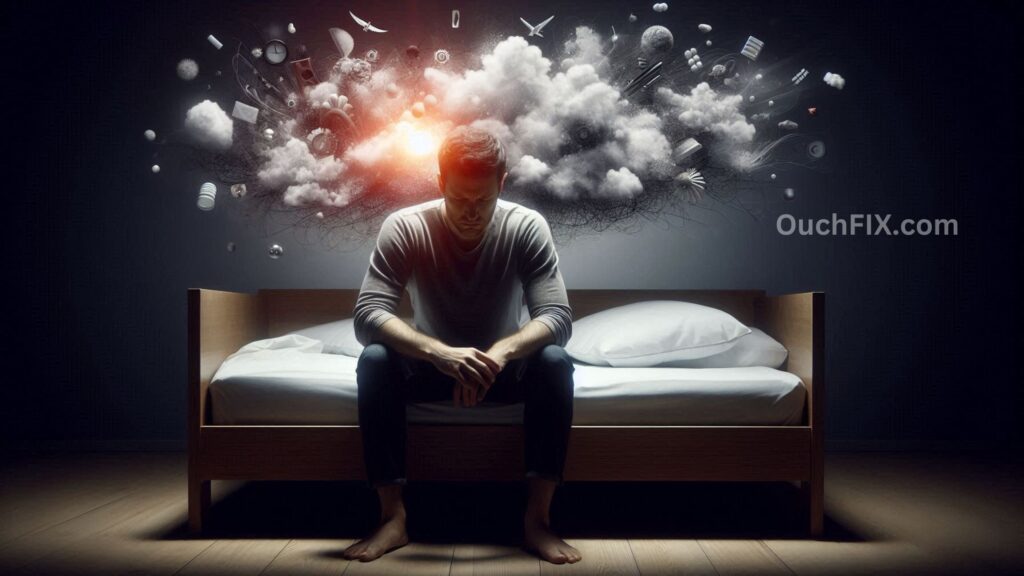If you live with chronic pain, you know how tough it can be to get a good night’s sleep. Pain and sleep are deeply connected. Many people notice that after a solid night’s rest, their pain feels a little more manageable. That’s why making sleep a priority could be a key part of managing chronic pain.
What Is Pain?
Pain is your body’s way of telling you something is wrong. It happens when nerve receptors send signals to your brain, creating that unpleasant sensation we all know too well. Pain can be short-term (acute) or long-term (chronic).

- Acute pain is temporary—it fades as your body heals, like after a broken bone.
- Chronic pain lasts for months or even years, like lower back pain, arthritis, or fibromyalgia.
The way we experience pain depends on several factors, including overall health, mood, and the reason for the pain. Unfortunately, when pain flares up at night, it often leads to restless sleep or even long-term sleep deprivation.

Also Read: How can Yoga Help in Maintaining Wellness and Reducing Aches?
How Chronic Pain Disrupts Sleep
Pain can affect sleep in different ways, depending on its type and cause. Some conditions get worse at night or are aggravated by certain sleeping positions. Others cause constant discomfort that never really fades. If you’re in a hospital or long-term care facility, factors like noisy environments or uncomfortable beds can make things even harder.

One of the most common issues for people with chronic pain is waking up frequently during the night. This repeated disruption throws off the body’s natural sleep cycle, preventing deep, restorative sleep. Since we need a healthy balance of all sleep stages—especially deep sleep and REM sleep—to feel rested, chronic pain sufferers often wake up exhausted.
Beyond the pain itself, many people with chronic pain also deal with sleep disorders like sleep apnea or restless legs syndrome. Some medications used for pain management can also interfere with sleep. Plus, stress, anxiety, and depression often go hand-in-hand with chronic pain, creating even more sleep struggles.
Finding the Right Sleeping Position for Pain Relief
The way you sleep can either help or worsen your pain. If you have joint pain (like in your hips, knees, or shoulders), sleeping on your side might be uncomfortable.

On the other hand, if you experience lower back pain, sleeping on your back or stomach might cause issues. A supportive mattress and pillow designed to reduce pressure points can make a big difference.
Some conditions, like multiple sclerosis, affect the nerves and cause widespread pain. This means you may need to change positions frequently during the night to avoid numbness or tingling. If you struggle to move in bed, a sleeping partner or caregiver might be able to help.

Also Read: What Simple Daily Habits Improve Overall Wellness and Ease Pain?
The Link Between Sleep and Pain
Scientists have discovered that poor sleep doesn’t just make you feel groggy—it can actually make pain worse. Lack of sleep can heighten pain sensitivity, making conditions like arthritis or migraines more severe.

Encouragingly, good sleep has been shown to improve pain levels over time. Researchers believe this is because sleep and pain share common pathways in the brain. For example, melatonin, which helps regulate sleep, may also play a role in how we perceive pain. Sleep deprivation can also increase inflammation, weakening the body’s ability to recover and cope with pain.
Some studies suggest that women are more sensitive to pain caused by poor sleep than men, while younger people tend to handle sleep disturbances better than older adults.
Chronic Pain, Mental Health, and Sleep: A Vicious Cycle
Chronic pain, sleep issues, and mental health struggles are often intertwined. Many people with chronic pain also experience anxiety or depression, which can make sleep even harder to come by. This creates a frustrating cycle:

- You’re in pain, so you struggle to fall asleep.
- You wake up feeling tired and stressed.
- Stress and exhaustion make your pain feel worse.
- The cycle repeats the next night.
A major factor in this cycle is catastrophizing—dwelling on pain and expecting the worst. Studies show that people who catastrophize tend to have worse sleep and more intense pain. In fact, about one-third of people with chronic pain also suffer from clinical depression, making it even harder to sleep well.
One effective way to break this cycle is through Cognitive Behavioral Therapy for Insomnia (CBT-I), a treatment that helps change negative thought patterns about sleep and pain. While CBT-I is especially useful for people with chronic pain, it’s less effective if there are additional conditions like anxiety or depression. Still, focusing on improving sleep and managing stress can help lower the risk of developing chronic pain after a traumatic injury.

Also Read: How do Meditation Techniques Contribute to Pain Relief?
Tips for Sleeping Better With Chronic Pain
Because chronic pain can make it harder to sleep, it’s important to develop healthy sleep habits. Here are some practical tips to improve your sleep quality:

- Create a bedtime routine – Stick to a regular sleep schedule, even on weekends.
- Optimize your sleep environment – Keep your room cool, dark, and quiet. Invest in a good mattress and supportive pillows.
- Limit screen time before bed – Blue light from phones and tablets can disrupt your body’s natural sleep signals.
- Avoid caffeine and alcohol in the evening – Both can interfere with deep sleep.
- Try relaxation techniques – Meditation, deep breathing, or a warm bath before bed can help ease tension.
- Consider professional help – If anxiety, stress, or depression is affecting your sleep, talking to a therapist or trying CBT-I might be beneficial.




